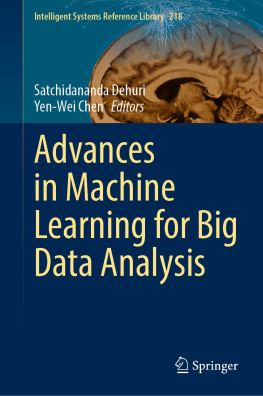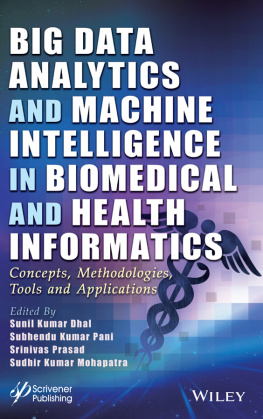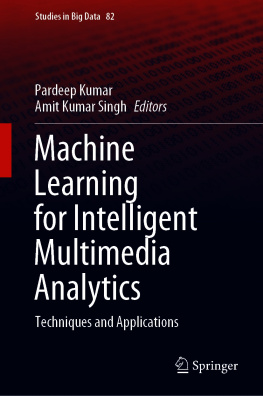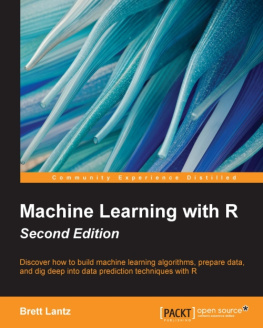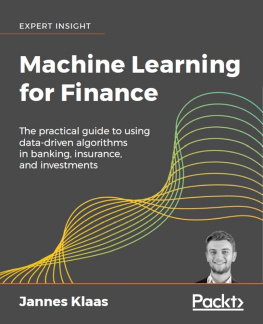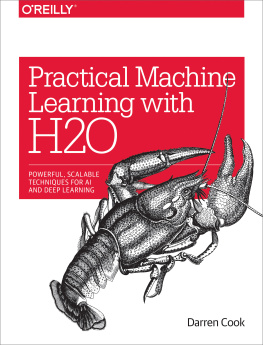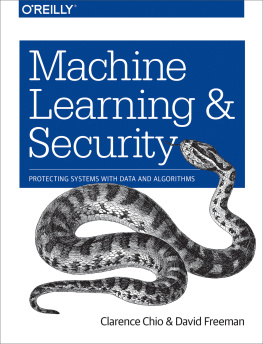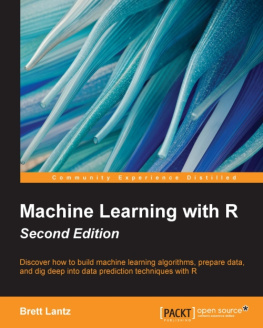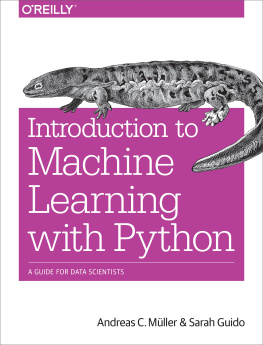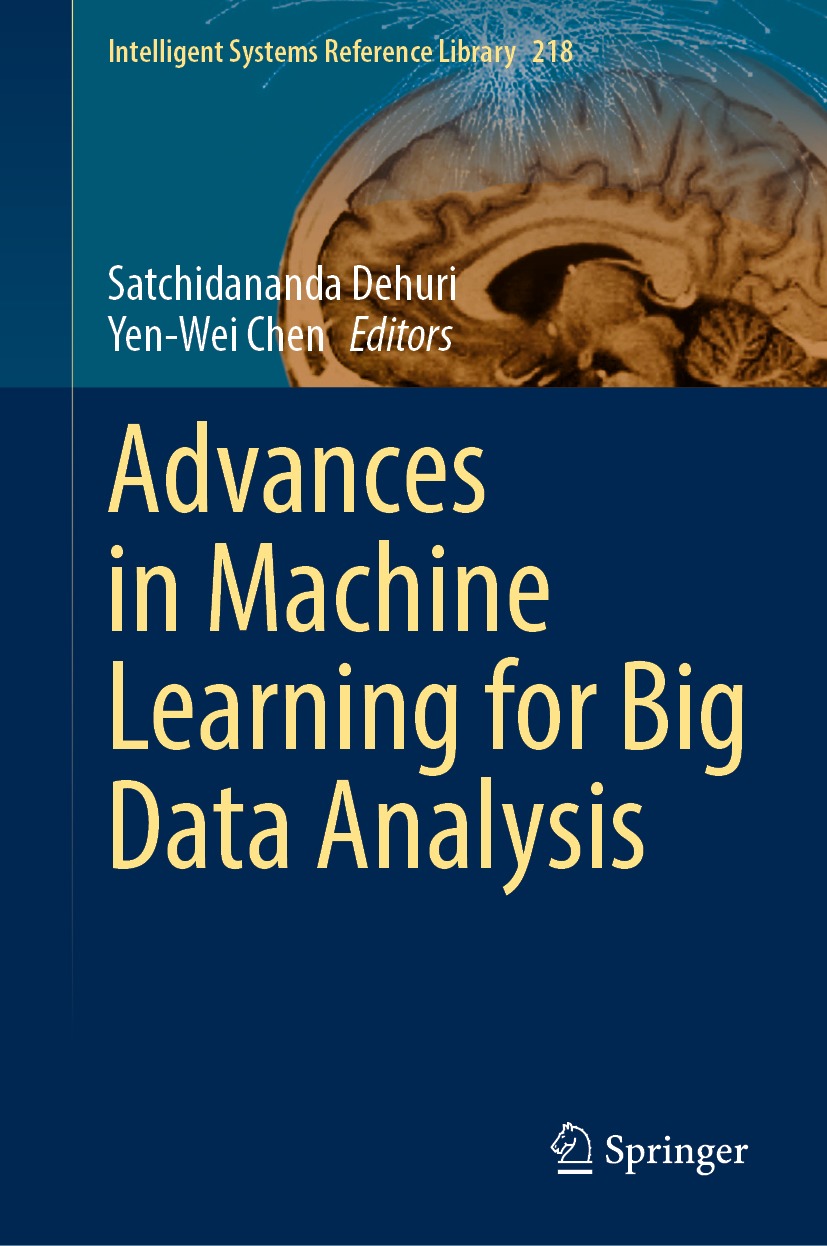Volume 218
Intelligent Systems Reference Library
Series Editors
Janusz Kacprzyk
Polish Academy of Sciences, Warsaw, Poland
Lakhmi C. Jain
KES International, Shoreham-by-Sea, UK
The aim of this series is to publish a Reference Library, including novel advances and developments in all aspects of Intelligent Systems in an easily accessible and well structured form. The series includes reference works, handbooks, compendia, textbooks, well-structured monographs, dictionaries, and encyclopedias. It contains well integrated knowledge and current information in the field of Intelligent Systems. The series covers the theory, applications, and design methods of Intelligent Systems. Virtually all disciplines such as engineering, computer science, avionics, business, e-commerce, environment, healthcare, physics and life science are included. The list of topics spans all the areas of modern intelligent systems such as: Ambient intelligence, Computational intelligence, Social intelligence, Computational neuroscience, Artificial life, Virtual society, Cognitive systems, DNA and immunity-based systems, e-Learning and teaching, Human-centred computing and Machine ethics, Intelligent control, Intelligent data analysis, Knowledge-based paradigms, Knowledge management, Intelligent agents, Intelligent decision making, Intelligent network security, Interactive entertainment, Learning paradigms, Recommender systems, Robotics and Mechatronics including human-machine teaming, Self-organizing and adaptive systems, Soft computing including Neural systems, Fuzzy systems, Evolutionary computing and the Fusion of these paradigms, Perception and Vision, Web intelligence and Multimedia.
Indexed by SCOPUS, DBLP, zbMATH, SCImago.
All books published in the series are submitted for consideration in Web of Science.
More information about this series at https://link.springer.com/bookseries/8578
Editors
Satchidananda Dehuri and Yen-Wei Chen
Advances in Machine Learning for Big Data Analysis

Logo of the publisher
Editors
Satchidananda Dehuri
Department of Information and Communication Technology, Fakir Mohan University, Balasore, India
Yen-Wei Chen
College of Information Science and Engineering, Ritsumeikan University, Shiga, Japan
ISSN 1868-4394 e-ISSN 1868-4408
Intelligent Systems Reference Library
ISBN 978-981-16-8929-1 e-ISBN 978-981-16-8930-7
https://doi.org/10.1007/978-981-16-8930-7
The Editor(s) (if applicable) and The Author(s), under exclusive license to Springer Nature Singapore Pte Ltd. 2022
This work is subject to copyright. All rights are solely and exclusively licensed by the Publisher, whether the whole or part of the material is concerned, specifically the rights of translation, reprinting, reuse of illustrations, recitation, broadcasting, reproduction on microfilms or in any other physical way, and transmission or information storage and retrieval, electronic adaptation, computer software, or by similar or dissimilar methodology now known or hereafter developed.
The use of general descriptive names, registered names, trademarks, service marks, etc. in this publication does not imply, even in the absence of a specific statement, that such names are exempt from the relevant protective laws and regulations and therefore free for general use.
The publisher, the authors and the editors are safe to assume that the advice and information in this book are believed to be true and accurate at the date of publication. Neither the publisher nor the authors or the editors give a warranty, expressed or implied, with respect to the material contained herein or for any errors or omissions that may have been made. The publisher remains neutral with regard to jurisdictional claims in published maps and institutional affiliations.
This Springer imprint is published by the registered company Springer Nature Singapore Pte Ltd.
The registered company address is: 152 Beach Road, #21-01/04 Gateway East, Singapore 189721, Singapore
Preface
In the era of big data, technological advancements are increasing rapidly as compared to the scientific community mentality. Nowadays, big companies and institutions facing the big data challenges are moving faster in developing advanced technologies to cope up with the competitive markets. Big data refers to the data that are generated over the internet which are huge, complex, and unstructured in nature. The main characteristics of big data include velocity, volume, veracity, and variety, termed as 4Vs of big data. Velocity signifies the exponential rate at which data are generated over the internet from various sources. These are also found to be heterogeneous, unstructured, and complex which might contain text, picture, audio, video, and other formats. Variety refers to all these characteristics. Veracity is another important characteristic that represents the biases, noise, or abnormality of data, which makes the model quite challenging to handle. Volume refers to the huge size of the dataset, which is generated at every instance of time over the internet world. The size of the data is so big that it is quite difficult to store, process, and analyze them using conventional tools. Many advances in big data technology have emerged as software utility, which is used to store, process, and extract meaningful information from extremely complex and large size datasets. Big data technologies can be classified as operational big data techniques or analytics big data techniques. Operational big data normally consist of all the data that are generated in day-to-day life such as social media data, online financial transactions, or the data generated by any particular organization. They need to be stored, processed, and useful information is to be extracted from them to build better business models. However, some of the data analytics are required to be processed within the deadline to make business decisions such as stock market prediction, weather forecasting, etc. These kinds of technologies are referred to as analytics big data techniques.
Machine learning is an effective tool that automatically processes and extracts the hidden patterns from the big data in order to make prediction or classification. However, its main focus is on the representation of the input data and generalization of the learnt models for use on unknown patterns. Machine learning algorithms are classified into supervised, unsupervised, and semi-supervised algorithms. In a supervised approach, models are trained based on the given prediction outcome. In unsupervised models, patterns are extracted by measuring the correlation between the objects without any supervision or given outcomes. Semi-supervised algorithms are the hybridization of supervised and unsupervised algorithms, which are applied at different stages of processing. The choice of adaptation is based on the application and the nature of datasets that need to be analyzed.
A number of machine learning algorithms have been developed in recent years to address the data analytics problems. Some of the popular machine learning algorithms are support vector machines, neural network, decision tree, random forest, K-nearest neighbors, deep learning, etc. The performances of these algorithms are limited to the size and complexity of the datasets. However, advancements to these machine learning techniques in big data can be done by employing hybridization, adopting ensemble techniques, and changing the parameters to empower computation, functionality, robustness, and accuracy aspects of modeling. These advanced tools can be extremely powerful in solving big data problems and they can be applied at every stage of big data analytics like data gathering, data segmentation, data analytics, simulation, and modeling. Machine learning models can also be useful in processing real-time streaming data where data are continuously coming in and going out of the system. Based on the patterns available in the data, it can be self-organized to accommodate the changes and provide accurate estimation for classification, clustering, etc.

